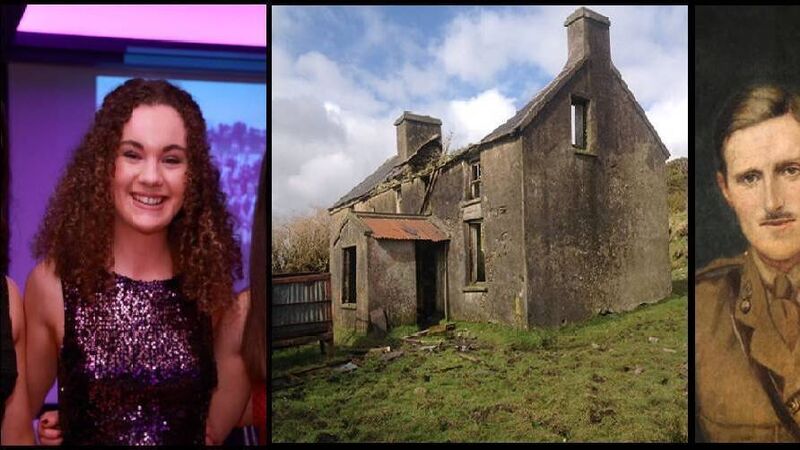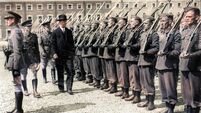Cork schoolgirl's class history project becomes RTÉ documentary

A composite image showing history project author and Donoughmore student, Saoirse Ní Shiocháin, the house in which Major Geoffrey Lee Compton-Smith was held in Donoughmore and a posthumous portrait of Major Geoffrey Lee Compton-Smith who was executed after his capture in 1921.
What began life as a Cork schoolgirl's class history project has now become the latest podcast from RTÉ's award winning "Doc on One" series.
Having overheard stories about the central role of her own Parish in the capture and execution of a British army officer during the War of Independence in Cork in 1921, Saoirse Ní Shiocháin decided to delve into the story a little deeper.
















